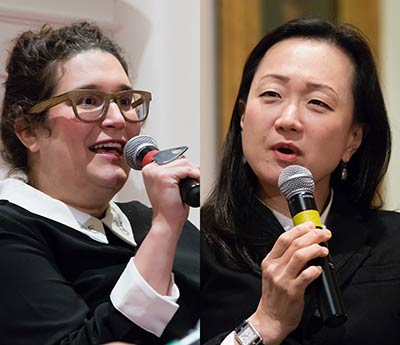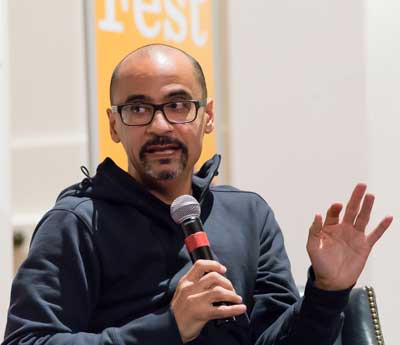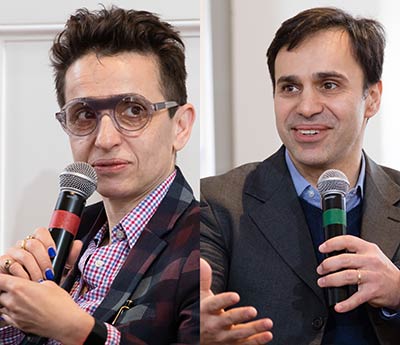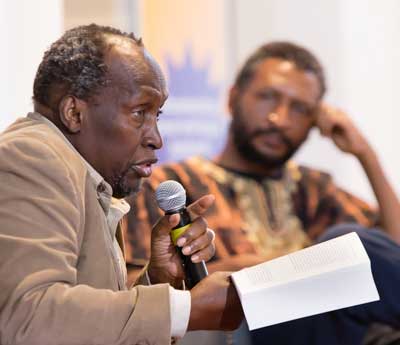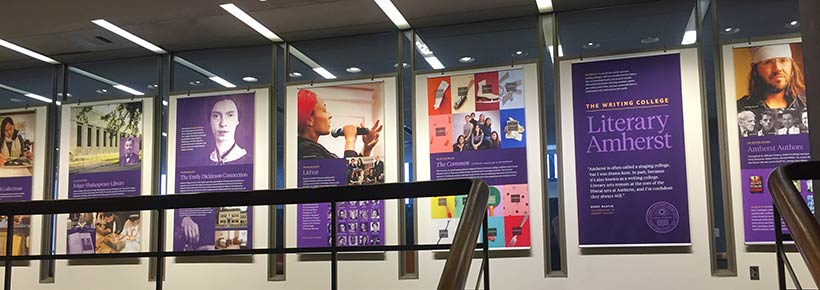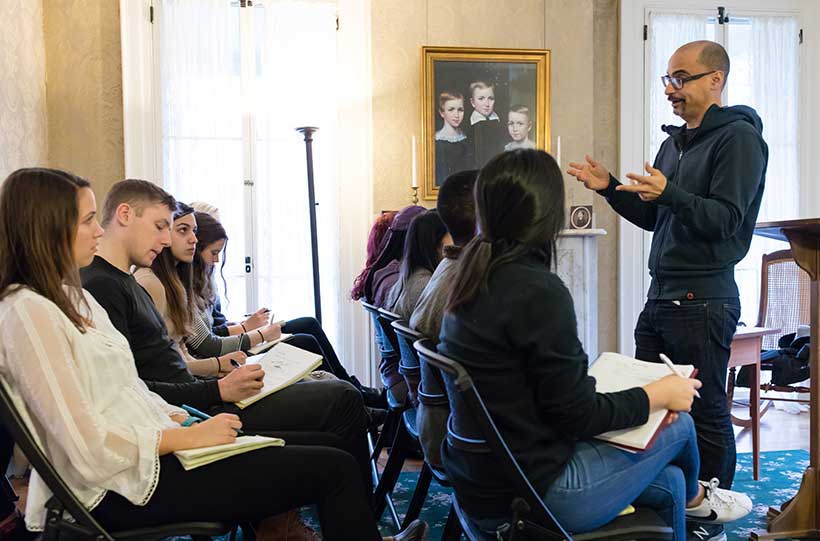
If you want to be a writer, Junot Díaz suggests putting down your pen and going out into the world. “Writing is an art,” he said to a class of 32 students gathered at the Emily Dickinson Museum during LitFest 2018, the College’s third annual literary festival. “And art comes out of your relationship with the world.”
Díaz, the Pulitzer Prize-winning author of The Brief Wondrous Life of Oscar Wao and the international bestsellers Drown and This Is How You Lose Her, began the class with remarks about the intrinsic nature of creative writing courses. “When a class doesn’t jell, you really feel that as a loss,” he said. “On the rare occasion when a class works, you remember it forever.” The hour-long session was likely an experience many students will never forget. Diaz offered tips on using voice as a strategy and creating characters that feel vivid and alive. But perhaps his most important advice was this: “It is only through our understanding of the world that any of our characters take on any meaning," he said. "Put down your pen, and experience the world.”
The master class preceded the LitFest 2018 headline event: a reading and conversation with Díaz hosted by Jennifer Acker, editor-in-chief of The Common literary magazine at Amherst. Aimed at celebrating the College’s literary history as well as exceptional writing and writers, the festival welcomed 1,700 students, faculty, staff and community members March 1–3.
The festival included discussions with 2017 National Book Award finalists Min Jin Lee and Carmen Maria Machado; 2017 National Book Award winner and Amherst professor Masha Gessen and her brother, author and n+1 co-founder Keith Gessen; and acclaimed Kenyan author Ngũgĩ wa Thiong’o. Additional activities included master classes with Lee and Machado, a poetry slam by Amherst students, conversations with book editors and with poet Rafael Campo ’87, and tours of the Emily Dickinson Museum.
There was also a workshop for students interested in publishing careers. It featured alumni experts and was hosted in partnership with the Loeb Center for Career Exploration & Planning. In addition, there was an exhibition in Frost Library, Literary Amherst, aimed at illuminating the College’s literary past and present and celebrating its role as a premier writing college.
Below are five snapshots from LitFest 2018.
